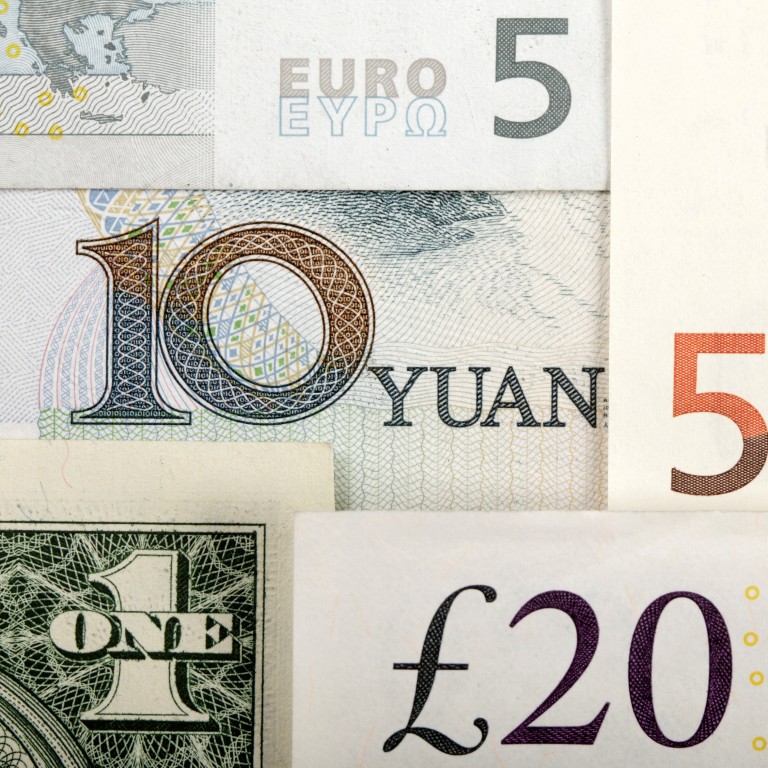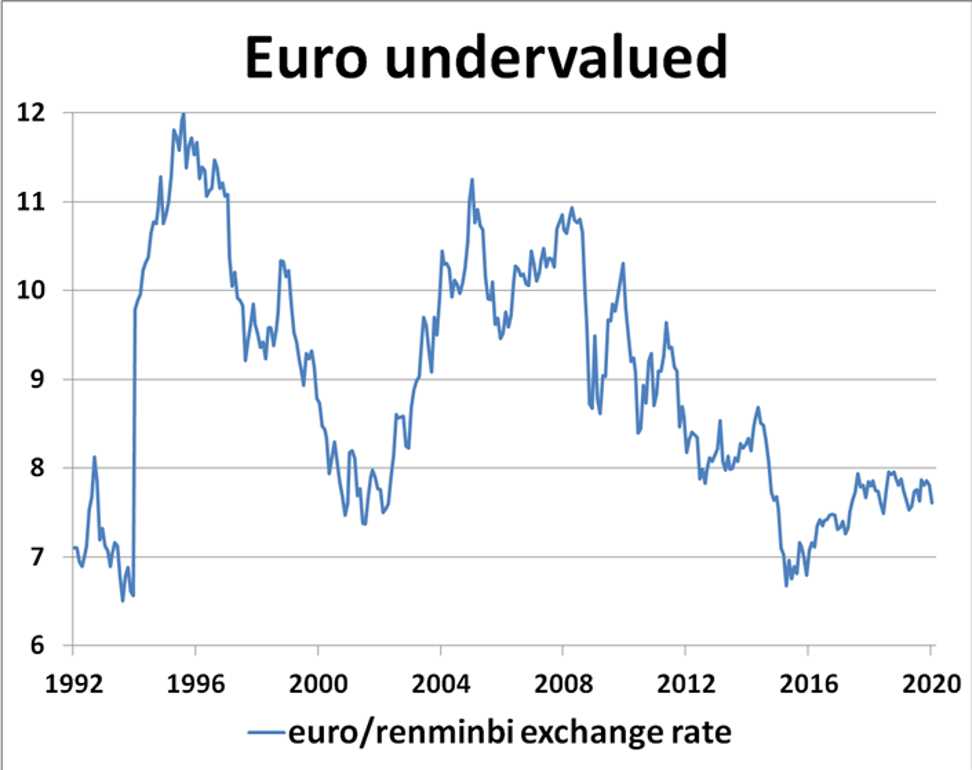
Why China’s currency reserve managers must pay attention to the euro in 2020
- The euro could be a major winner in the currency markets this year, as world trade and the German economy get back on track
- If the euro rallies against the dollar, there are important implications for China’s currency reserve management
This could all change very soon though, and euro bears should be on the alert for a quick turnaround in the currency’s fortunes this year. The euro could be one of the major winners in the currency markets in 2020 as short positions are closed out and punters take a more upbeat attitude towards the currency. A stronger European economy is an opportunity for Chinese exporters.
Many of the negatives which have plagued the euro in the past few years could soon vanish. With Britain’s imminent departure from the European Union looking less of a future shock, many of the associated risks of a hard exit have receded.
Although there’s still plenty of hard work to be done in negotiating a less-damaging divorce, there seems to be some prospect of getting back to business as usual, albeit on different terms, and therefore avoiding the calamitous economic fallout many have feared.
And with the United States and China finally signing the first part of a tentative trade deal, world trade flows have a chance of rising back to normal levels in the next few years.
Europe’s biggest economy, Germany, should be doing a lot better this year as global business activity returns to normal. Thanks to the trade war, German growth slowed to 0.6 per cent last year, the weakest rate since 2013, but at least the economy escaped recession.
Germany’s industrial downturn might linger for a while but its output, investment and new orders should all pick up as the global recovery builds up a head of steam this year. As a bellwether for the European economy, a faster-growing Germany should provide a positive lead for the region’s asset markets and the euro exchange rate as well.
With trade deal, China kicks the can of economic reforms down the road
The ECB expects modest growth of 1.1 per cent for the euro zone this year, but with the factor of faster global recovery in the mix, there might be an early end to the central bank’s super-loose policy of negative interest rates and extended quantitative easing. A return to a tougher interest rate policy is long overdue as far as Germany’s hawkish Bundesbank is concerned.
China’s yuan 10 years from being on par with US dollar, says US economist
A change in relative interest rate perceptions will mark a watershed for the euro, especially against the dollar, as markets weigh up the possibility of a further US rate cut. A rally to US$1.25 could be on the cards for the euro later this year, given the weight of negative speculation which has built up against the currency.
Short squaring could run a long way in the currency’s favour, considering that the euro has been a popular funding base for investors leveraging the euro-zone’s negative interest rates to finance higher-return trades into other currencies.
China and Europe have a common interest in promoting faster economic growth this year. Chinese exporters can certainly leverage a stronger European economy and a more competitive exchange rate. But, more importantly, Europe and China need a solid free trade deal to speed up bilateral trade flows and foster faster growth. It would be in the world’s best interests.
David Brown is chief executive of New View Economics


